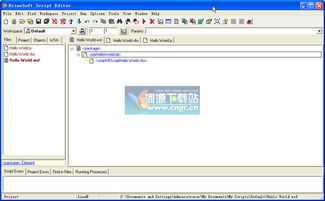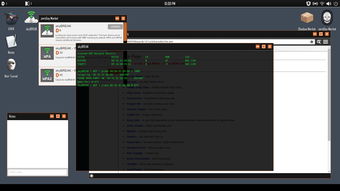
With the rapid advancements in technology, the way we use software has evolved significantly. One of the most notable trends is the shift towards no-install software. This article explores the concept of no-install software, its benefits, and why it's becoming increasingly popular among users worldwide.

No-install software refers to applications that can be used without the need for traditional installation processes. These programs are designed to be easily accessible and ready to use with minimal setup. They often come in the form of portable applications, web-based applications, or cloud-based services.

There are several advantages to using no-install software:
1. Instant Access
No-install software allows users to access applications immediately without the need for lengthy installation procedures. This is particularly beneficial for users who need to quickly access a specific tool or service.
2. Portability
Portable applications can be easily transferred from one device to another, making them ideal for users who frequently switch between computers or devices.
3. System Resources
No-install software typically consumes fewer system resources compared to traditional installed applications, which can help improve overall system performance.
4. Security
Since no-install software doesn't require installation on the host system, it reduces the risk of malware infections and other security threats.

No-install software can be categorized into several types:
1. Portable Applications
Portable applications are standalone programs that can be run from any storage device, such as a USB flash drive or external hard drive. They do not require installation on the host system and can be easily shared with others.
2. Web-Based Applications
Web-based applications are accessed through a web browser and do not require any installation on the user's device. They are often used for online collaboration, productivity, and entertainment purposes.
3. Cloud-Based Services
Cloud-based services allow users to access applications and data over the internet, eliminating the need for local installation. These services are particularly useful for remote work and collaboration.

While no-install software offers numerous benefits, there are also some challenges to consider:
1. Limited Functionality
Some no-install software may have limited functionality compared to their installed counterparts, especially when it comes to advanced features and customization options.
2. Compatibility Issues
Users may encounter compatibility issues when using no-install software on different operating systems or devices.
3. Internet Dependency

The demand for no-install software is expected to grow as more users seek convenience, portability, and security. As technology continues to advance, we can expect to see more innovative no-install solutions that cater to the diverse needs of users worldwide.

No-install software is revolutionizing the way we use applications, offering convenience, portability, and security. While there are some challenges to overcome, the benefits of no-install software make it a compelling choice for users looking for a more efficient and flexible computing experience.